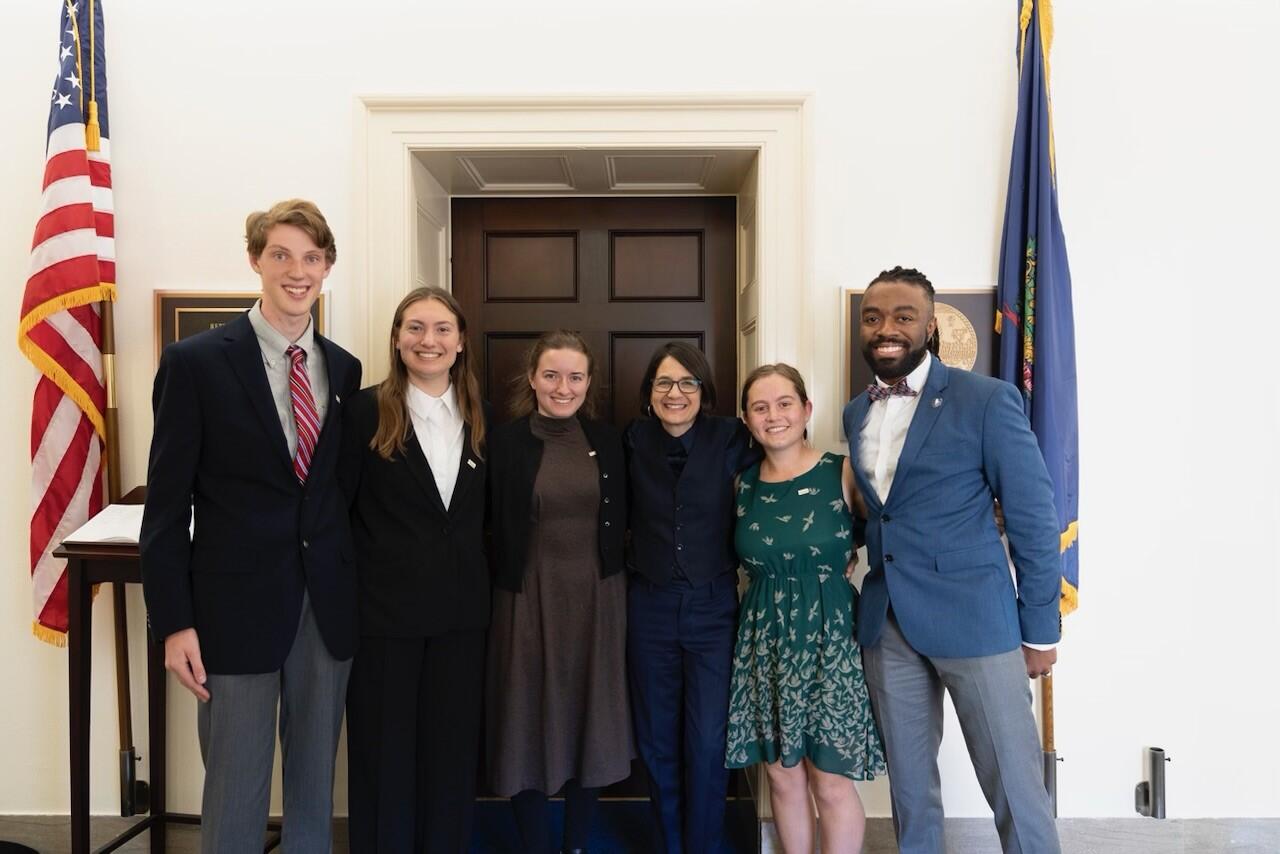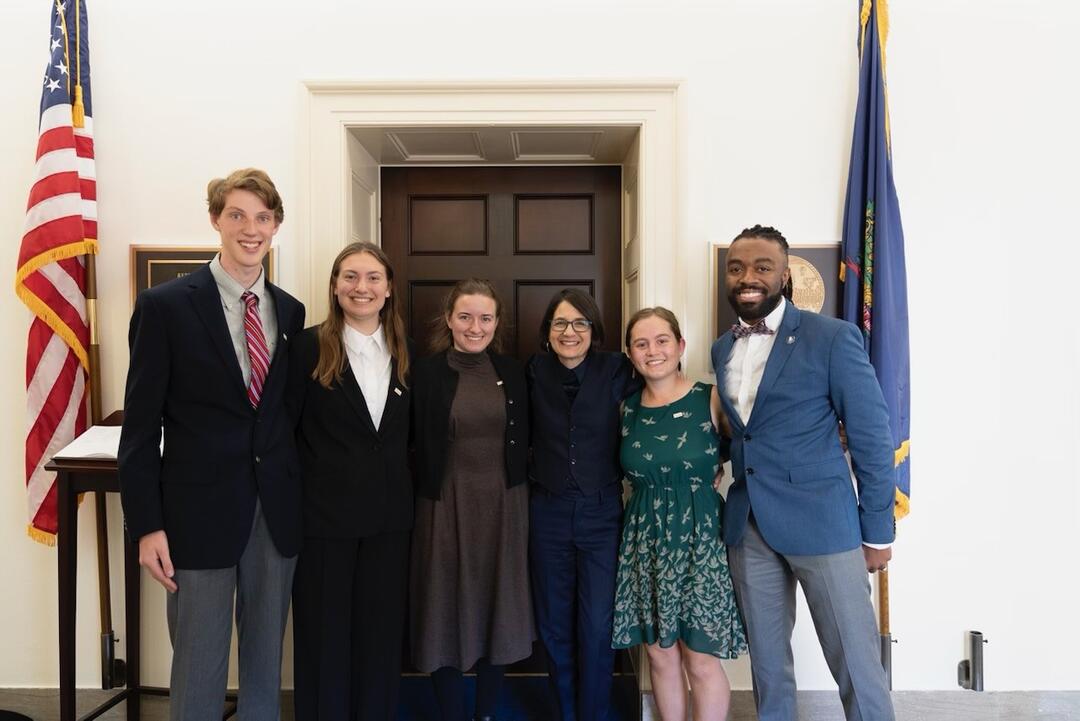UVM Birding Club is part of Audubon's Campus Chapter program and works closely with Audubon Vermont. UVM Birding Club hosts birding outings and volunteer days for their membership.
This past October, the leadership board of the UVM Birding Club (formerly Audubon UVM Chapter) was presented with an opportunity to go to Washington, D.C. for a two-day, all-expenses-paid Fly-In to speak with members of Congress about protecting shorebirds, forage fish, coastal wetlands, and natural infrastructure. The opportunity was offered and fully funded by the National Audubon Society, as our club is part of the Audubon On-Campus Program.
The attendees representing UVM were former club President and past Audubon Vermont intern, Grace Yaros, and the current leadership team President Catriona Goering, Vice President Spencer Ogden, and Treasurer Laura Annunziata. While in Washington, D.C., we participated in a training session at the National Audubon Society’s offices before heading to our meetings with various Congress members. We were fortunate to meet with Vermont Representative Becca Balint, Vermont Senator Peter Welch, some of Senator Bernie Sanders' staff members, and a staff member for Representative Thomas Kean Jr. of New Jersey’s 7th Congressional District. Many thanks to Remy Moncrieffe, National Audubon Society Marine Conservation Policy Manager, for assisting with meetings and for showing us around D.C.
In the meetings, we educated Congress members on how important biodiversity is to us, especially relating to birds, and why we feel that coastal ecosystems need to be protected. These areas are crucial habitats for migrating songbirds and shorebirds, and are typically considered bird hotspots because of all the avian diversity that can be seen at these places. In Vermont, Delta Park, which is where the mouth of the Winooski River meets Lake Champlain in Colchester, is the best birding hotspot in the state with over 250 species of birds reported there. While the location is not coastal, it plays a similar role as a migration stopover site. Unfortunately, many species that use Delta Park and other wetlands are in decline. One reason is that forage fish, small fish like herring that make up the bottom of the food chain, have no protections under the Magnuson-Stevens Fishery Conservation and Management Act. Migrating shorebirds feed on these fish, so in order to conserve the birds, the fish need to be protected too. As these fish have no current protections, they are vulnerable to overharvesting, an outcome which the National Audubon Society is working to mitigate.
We also educated members of Congress about the importance of natural infrastructure. Coastal and inland wetlands are critically important in protecting human infrastructure from extreme flooding. Wetlands serve as holding areas for runoff, controlling the flow of water out of the wetland. With climate change leading to more frequent, severe flooding, it is more important than ever to conserve these critical ecosystems, not just for the benefit of birds that use these areas, but for the benefit of humans as well. A case of particular importance to us was the flooding event in Vermont this summer.
We feel extremely fortunate to have been given this opportunity, as it was a great experience all around. We got to meet and network with National Audubon staff members and student-leaders of college birding clubs from around the country. Additionally, we were proud to represent UVM and the state of Vermont.
Authors:
Spencer Ogden, UVM Birding Club Vice President
(Junior, Environmental Science major)
Catriona Goering, UVM Birding Club President
(Junior, Environmental Science & Wildlife Biology double major)
Laura Annunziata, UVM Birding Club Treasurer
(Junior, Wildlife Biology major)





